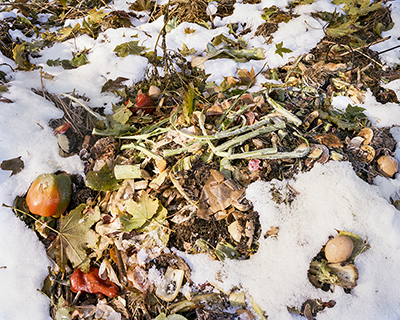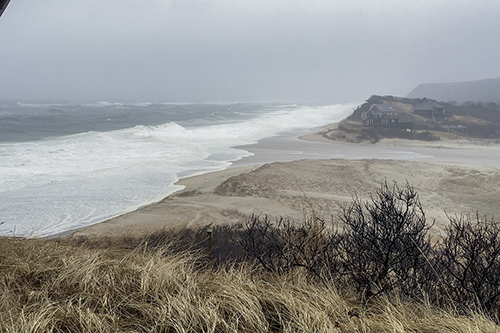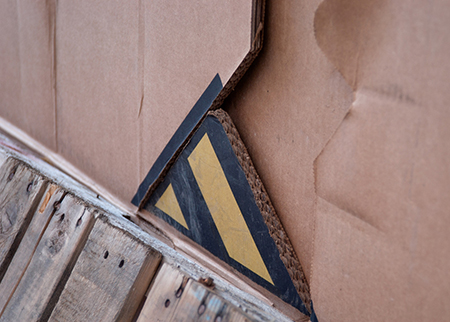March 23, 2021 6:30pm
Featuring work by Christine Collins with Emily L. Ferguson and Mary Gillis
Ecological focused art is a genre with a purpose created by artists who are concerned with the state of both local and global environmental situations. Many photographers working with this theme focus on ecological activism and the highlighting of issues that help improve an area environmentally and/or that highlights a specific environmental issue. By bringing their concerns to light through visual means it makes a strong impact. The work of eco photographers improves our relationship with the natural world and addresses aesthetics, ethics, politics, culture, and economics.

In her series Reclamation, photographer Christine Collins photographed the same family’s compost pile over a period of time. It was located in the back corner of a well-tended yard, a sprawling, wild and ever changing pile. Her interest is in how the physicality of the pile changed with the seasons and references both cycles of time and contemporary desires. The centuries’ old agrarian practice reminds us of who we want to be. This series focuses on the sustainable food movement, a catchphrase for a practice that long precedes us, reinvigorated our relationship to the landscape. Local farms have become temples to this movement and are the backdrops for our fantasies about a harmonious participation in the landscape. We seek to make this halcyon vision congruent with the many hours most of us spend inside.
Christine Collins is an artist whose work focuses on our often fraught relationship to the cultivated landscape. Collins earned a BA from Skidmore College and an MFA from Massachusetts College of Art and Design. Her work has been widely exhibited and featured in numerous publications including On Death, published in 2019 by Kris Graves Projects, The New Yorker and The Boston Globe. In 2017, Roman Nvmerals Books published her limited-edition artist book Oil/Cloth. Collins is the recipient of a St. Botolph Club artist fellowship and was awarded a Massachusetts Cultural Council artist fellowship in photography. Her work is represented by Gallery Kayafas in Boston and she is currently an associate professor and chair of BFA Photography and Interdisciplinary Studies at Lesley Art + Design.

Emily L. Ferguson is a photographer located in North Falmouth on Cape Cod. Her work exposes ecosystems and their changes over time under environmental pressures with a strong overlay of their surviving beauty, intimacy and solace. During the 25 years that Ferguson has been photographing around the Cape and southeastern Massachusetts she has built a daily portfolio detailing the margin between land and water around the perimeter of Buzzards Bay over a 12 month period. She began her career in mid-life and is largely self-taught, inspired by some of the leading mid-century figures like Eliot Porter and Galen Rowell. Her vision straddles the classic environmental attention to the broad vista and the detailed world inside it.

Mary Gillis is a Boston native, a retired CPA. and has studied color theory and two-dimensional design at the School of the MFA, and artist books and printmaking at Boston University. She began photographing in the early 1970s with a Nikkormat SLR and in the 80s and 90s she made several hiking trips to the Indian Himalayas where she shot in black and white, her first love, then she moved to digital around 2004. In 2010 she began a series called ‘Trash’—attempting to raise awareness of wastefulness and in 2019 twelve images from that series were included in an exhibition titled “The Waste Land” at the Harvard Ed Portal in Allston. “As a photographer I’m interested in composition and color relationships. It occurred to me that if I could make photographs of trash that would draw a viewer in, that awareness of the trash problem would be increased.”
